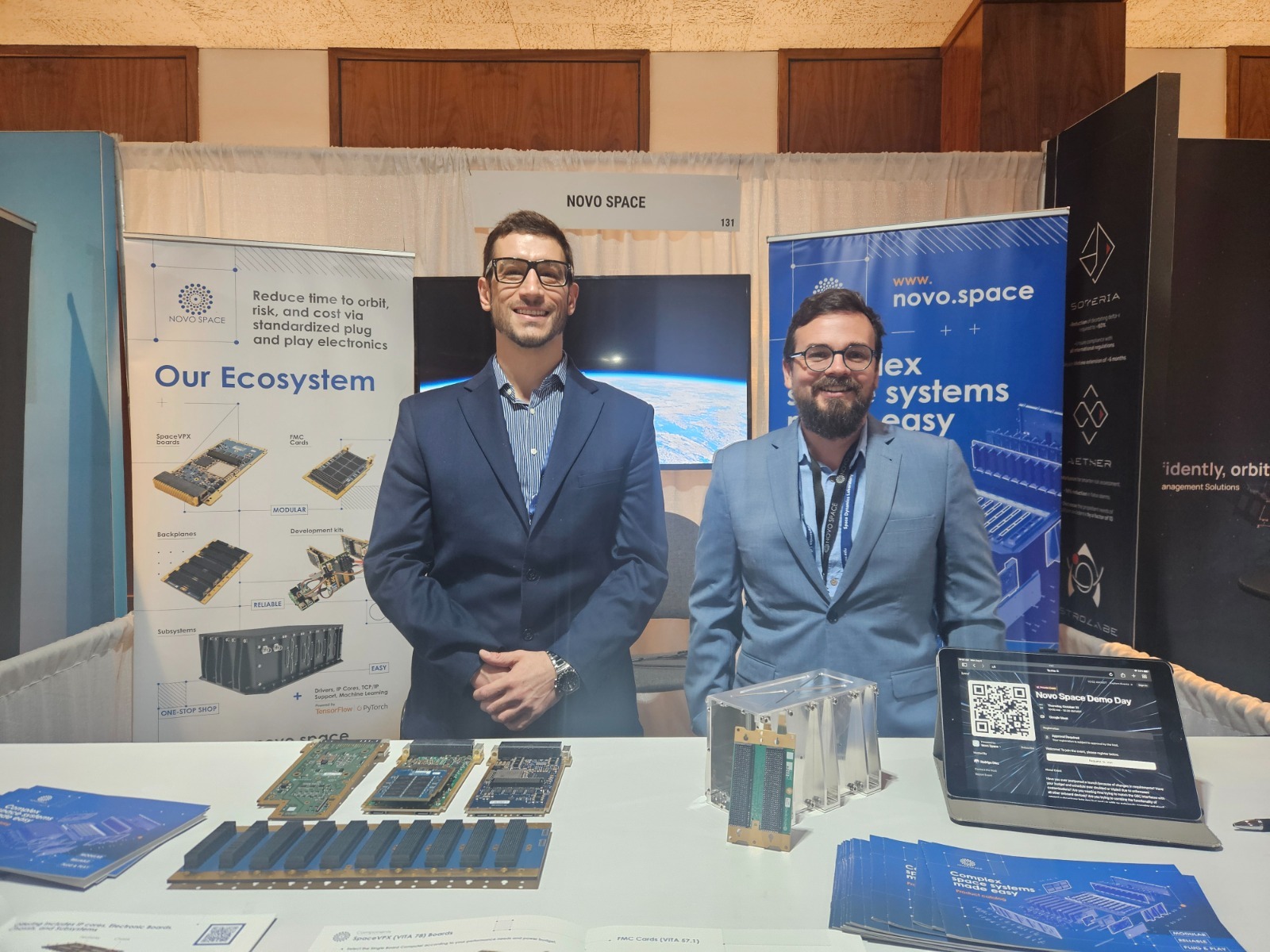From the South to Space: How Novo Space Is Rewriting the Rules of Orbital Computing
.jpeg)
Space is no longer a fantasy. It's a playground for innovation. New players are accelerating the future, and at Draper Cygnus, we believe that those who push the frontier of technology will define the next chapter of humanity.
That’s where Novo Space comes in: a startup that wasn’t on our radar at first, but quickly proved it was something much bigger. A new way of thinking about space computing, starting out of Argentina. Just a reminder that dealflow construction is a never-ending job, you never know where the next outlier is going to come from.

A message that changed everything
Rodrigo Diez reached out after a talk about investing in Latin American deep tech founders. He wanted to share what he and Facundo Jorge were building. We expected a short call. It turned into a two-hour conversation, the kind of conversation where you can see the vision and feel ambition in every word.
They told us about an industry stuck with outdated hardware, years-long development cycles, and massive costs. But more than anything, they spoke of an opportunity. A way to rethink how computing systems operate in space. That clarity and conviction led us to lead their pre-seed round.
Breaking one of the biggest bottlenecks in the industry
For decades, space missions have relied on custom-built computing systems. They’re reliable, but slow to develop, expensive, and limited in performance. This approach has worked for a long time, but today’s missions demand much more. They need high-speed processing, real-time adaptability, and rapid deployment. Legacy systems can no longer keep up with the pace of innovation.
The big question: how do you get cutting-edge terrestrial hardware and software to work in the harshest environment imaginable?
Novo Space answered with elegance and precision. They built a modular architecture, plug-and-play software, and simulation engines that allow complex configurations to be developed and tested in days, not years. This approach enables space systems to run on the latest processors, memory, and applications without compromising on reliability.
This is not just a technical achievement. It's a shift in mindset. By reducing time-to-orbit and cutting costs dramatically, Novo Space makes high-performance computing accessible to more missions, more countries, and more companies. It democratizes the possibilities of space.
From Lab to Orbit: Novo Space Is Already Powering Real Missions
Novo Space’s technology has officially moved beyond the lab and into orbit. Their SpaceVPX systems, which combine single board computers (SBCs), mass memory units, and GPUs, have already been adopted by major industry players like Maxar, AST Space Mobile, Thales Alenia Space, Mitsubishi, MIT, the U.S. Air Force, and many others.
And that’s not just a badge of prestige. It means their modules are already running on operational satellites, both commercial and governmental, in low Earth orbit. Their systems are being used in Earth observation missions, satellite communications, and test platforms. One of their standout products, the SBC002AV, has even been featured in technical reports as a radiation-tolerant solution built specifically for the extreme demands of space environments.
The implications go far beyond hardware
This partnership is not only about better chips or faster boards. It’s about redefining what’s possible in orbit. With more reliable, adaptable systems, satellite operators can respond to changing conditions in real time. Space manufacturers can simulate and optimize production from Earth. Deep space missions can run onboard AI models that improve decision-making without waiting for a signal from home.
The ripple effect of this technology will touch everything from Earth observation to planetary exploration. It’s about unlocking a new layer of intelligence in space: one that doesn’t just follow commands but processes, reacts, and evolves.
When technology stops being a barrier, anything becomes possible
What used to be unthinkable is now within reach. Modular satellite constellations. On-orbit manufacturing. AI running in real time beyond the Earth’s atmosphere. Deep space missions with onboard processing power.
By removing the need for custom-built systems that take years to deploy, Novo Space unlocks massive growth across the entire space industry. Once the tech stops holding you back, ideas take off.
And this is just the beginning. The platforms they are building today could become the default operating system of tomorrow’s space infrastructure.
Betting on founders who rewrite the future
Rodrigo, Facundo and their team aren’t just building a company. They’re laying down critical infrastructure for the new space age. An age where Latin American talent takes center stage, not as support, but as architects of global solutions.
At Draper Cygnus, we’re obsessed with finding these inflection points. Moments where a team, a technology, or a partnership reshapes what’s possible. Novo Space is one of those moments.
We backed them early because we saw more than a product. We saw leadership, vision, and the courage to tackle problems that others had accepted as permanent. And that’s exactly the kind of founder DNA we look for.
Looking ahead
The future of the space industry will be faster, more flexible, and more decentralized. It will need platforms that are up to the task. That’s why we believe what Novo Space is building is not evolution. It is a revolution.
Novo Space is currently headquartered in Orlando, Florida, with a growing team of approximately 34 people. It also maintains operations in Buenos Aires, Argentina, where it was founded, and has a presence in California.
We continue to back founders who are not satisfied with the status quo. Founders who do not wait for the future to arrive. They build it, launch it, and scale it.
Novo Space is one of them.
.svg)